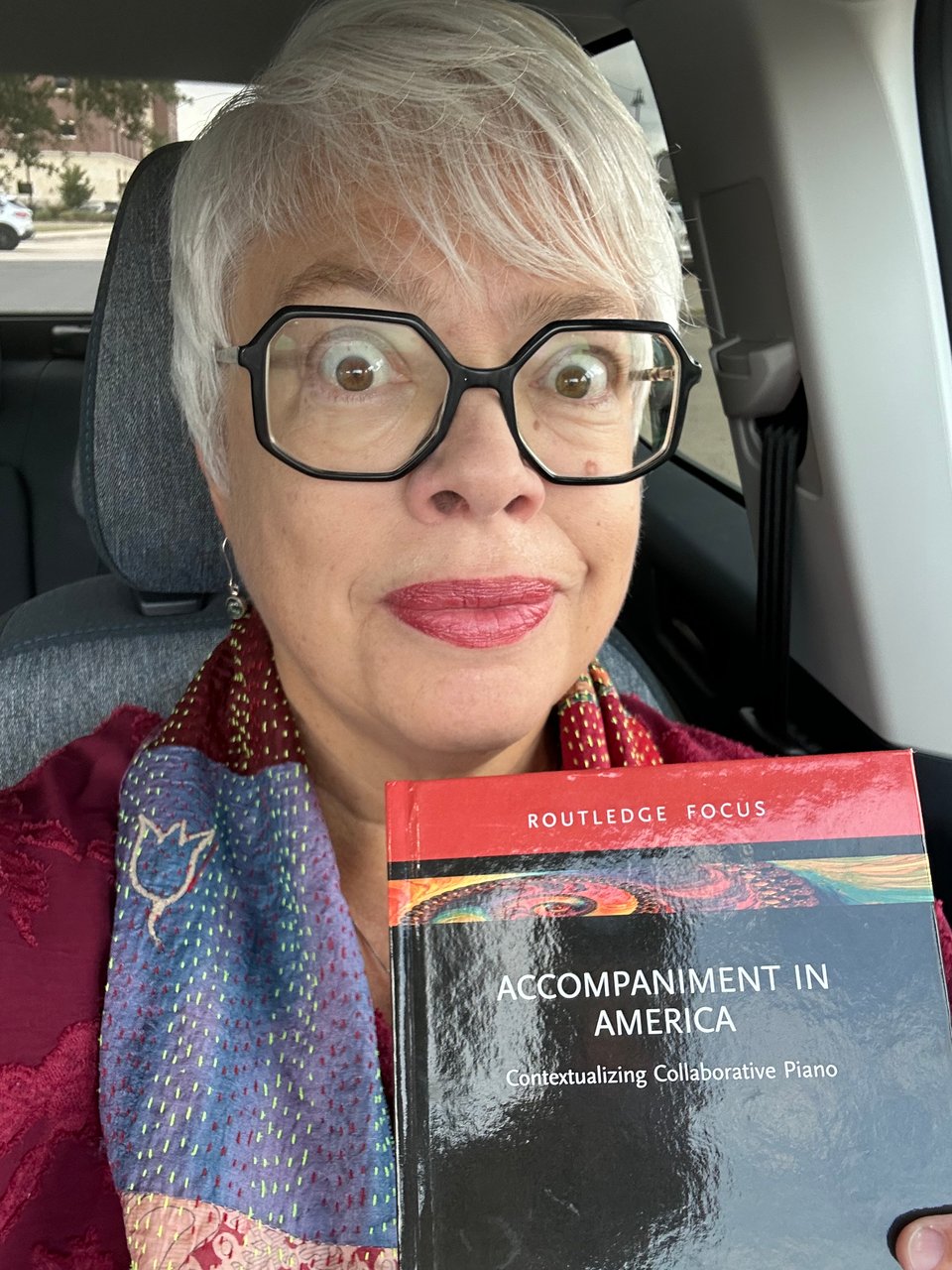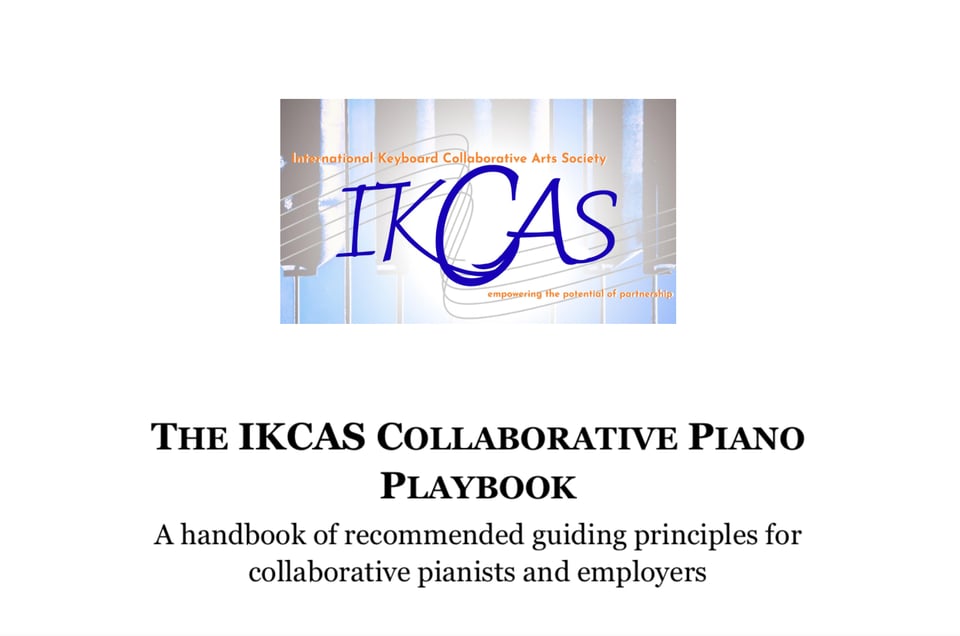Using our words
Words are sacred. They deserve respect. If you get the right ones, in the right order, you can nudge the world a little - Tom Stoppard
What a day was yesterday!
I didn’t expect holding a hard copy of Accompaniment in America would feel so monumental. It’s a real book, y’all.

The only thing more epic was getting to talk about it in a room full of IKCAS compatriots. Preparing for our presentation, I spent some hours going back through the book’s digital collection. This is one of AIA’s best features, and I’m so glad that lead author Chanda Vanderhart insisted on finding a publisher who would do it. It’s a treasure trove of interviews, photos, and other documents that support and illuminate the book’s storylines, and it can be constantly updated.
Our book is living! It’s one step along a constantly evolving path, and that evolution is fostered by the very form of the book. How cool is that?
As I listened to clip after clip of the interviews, I remembered our “hot girl summer” of 2024 (it was summer, it was very hot outside, and we were girls), hooked up to Zoom for hours of incredible conversation with pianists from across the country and across the profession. Some of those people sat in the auditorium yesterday (hey Casey and Sara!). Their colleagues and students were there, too, along with colleagues new to me from China and Brazil who had presented on collaborative piano practices in their countries. All around the world, we’re contending with the same labor issues: equity, precarity, sustainability. The AIA chapter I helped write was all about that, the state of our profession right now. But as I worked my way through the digital collection, the interviews I lingered over were the ones that revisited the past.
Kristin was on my mind when I dug into the Koldofsky Collection. Considering the influence of Gwendolyn Koldofsky, who taught an entire generation of collaborative pianists who would go on to establish degree programs and teach further generations of pianists and their partners, there was hardly a wealth of evidence left to limn her artistry. There are no professional recordings of her piano playing, described in reverent detail by her students; her famous partners used her in recital but made their records with men at the keyboard. And university music departments - well, writing this book was a master class in the quality of their record-keeping. What we have of this most impactful woman is due to the efforts of individual students and friends. Three of these, Russell Miller, Alan Smith, and Paula Fan, have passed in just the last few years. Still processing the loss of Kristin, I listened to the words of Madame K and her students both living and dead with sharpened ears.
“Storytelling” has become a buzzword, its impact draining away after years of overuse in the arts and now in advertising. But storytelling is everything. Which and whose stories we tell, and how, and to whom - this is how we take our lives forward, and maybe “nudge the world” a little, as Tom Stoppard says. I love the tender urgency of stories about someone who can no longer tell their own. Humans understandably lean into that work of loving excavation. We certainly did in our book, recounting our profession’s history. And then we shifted our gaze to the future. I love that our book finishes with a built-in open door, the digital collection where we can add what we missed and where ideas can come from anywhere.
More than anything, I love that our interviews led to more and more conversations. Those led to more partnerships, which led to more presentations, which led to another article (next month’s Journal of Singing, you can count on me bragging about it soon).
It all (drum roll plz) led to this:

This handbook is another living document, easily updatable, intended as a resource for every collaborative pianist and every musician or administrator who engages with them. From students to professionals, freelancers to tenured faculty, this document offers guidelines for job structures, professional development, supportive communication, mutual care and protections, and progress toward equity. It’s necessarily open-ended, intended to be inclusive rather than restrictive.
I did the heavy lifting when it came to writing this handbook, but credit is due to the whole IKCAS membership. The impetus for this document comes from a whole series of town halls run by Elvia Puccinelli, Casey Robards, and myself, during which members talked about the support they were seeking. Many, many voices came together to spur this project on.
Now we have a collection of words to read together, and to share with our colleagues as a first step in building mutual understanding and trust. As pianists, we never have our colleagues in rehearsal with us - but we can now, through this document. As we seek fairness and support in our workplaces, we can be less alone, and this document can represent a global community working for the same goals of equity, sustainability, and safety. This document can help our colleagues understand our struggles as systemic rather than personal.
Bold ideas, right? Well, I’m a pianist who plays with singers. I know that words can be magic. Thanks to what’s come before, I feel like stepping forward with a big song.
Elvia, Kristin, Alan, Paula, Russell, Jean, Ann, Steven, Chanda, Casey, Sara, Ana Maria, Ann, all the AIA interviewees, everyone in the town halls, Brad, Lisa - I think I’d better just thank everyone. All the pianists.
Add a comment: